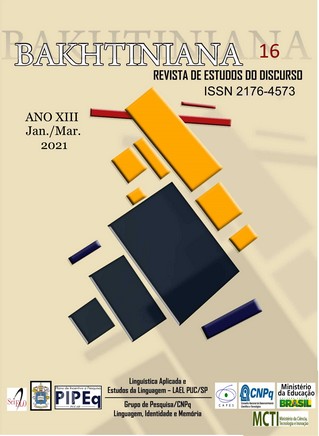As implicações de uma abordagem dialógica para a aquisição de linguagem: o exemplo de uma pesquisa sobre a aquisição de expressões referenciais
Palavras-chave:
Experiência comunicativa, Dialogismo, Aquisição da linguagem, Expressões referenciaisResumo
Este artigo tem como objetivo ilustrar a contribuição do dialogismo para o campo de aquisição da linguagem. De acordo com as abordagens dialógicas, as crianças não experienciam unidades e estruturas linguísticas per se; elas experienciam a linguagem em contextos significativos. Mais especificamente, gêneros do discurso, atividades e situações de interação aparecem como mediadores entre o discurso individual, os usos sociais e uma linguagem particular. Para ilustrar as implicações de uma abordagem dialógica, este artigo apresenta uma pesquisa sobre a aquisição de expressões referenciais (projeto DIAREF). As expressões referenciais são particularmente relevantes, já que seu domínio envolve tanto aspectos formais quanto funcionais da língua. Os resultados mostram que os usos de substantivos, pronomes pessoais, pronomes demonstrativos e deslocamentos realizados pelas crianças são determinados em conjunto com os fatores pragmático-discursivos, tais como a posição nos encadeamentos referenciais, e fatores sócio discursivos, tais como gêneros do discurso, atividades e situações interacionais.








